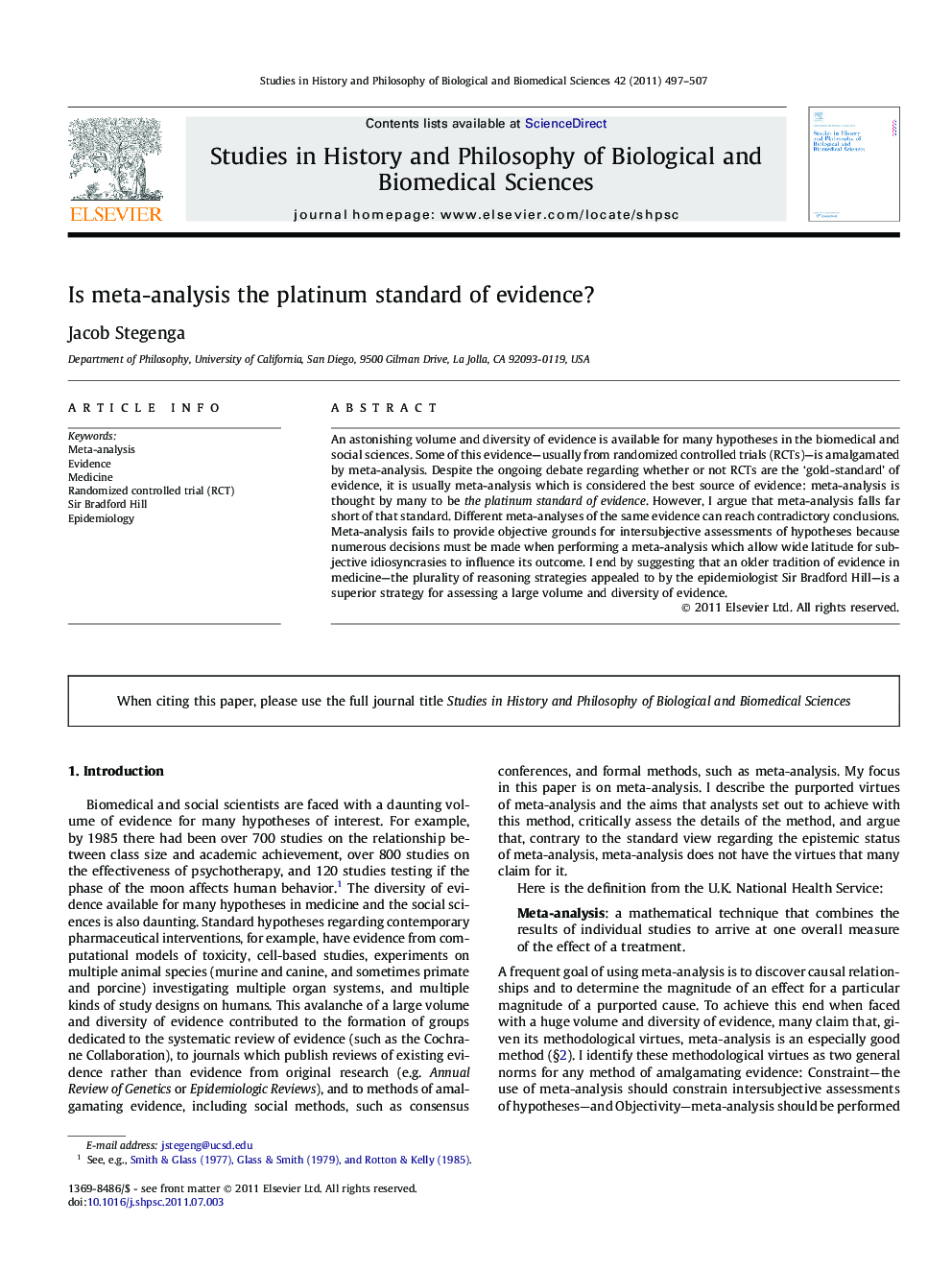| Article ID | Journal | Published Year | Pages | File Type |
|---|---|---|---|---|
| 1161990 | Studies in History and Philosophy of Science Part C: Studies in History and Philosophy of Biological and Biomedical Sciences | 2011 | 11 Pages |
An astonishing volume and diversity of evidence is available for many hypotheses in the biomedical and social sciences. Some of this evidence—usually from randomized controlled trials (RCTs)—is amalgamated by meta-analysis. Despite the ongoing debate regarding whether or not RCTs are the ‘gold-standard’ of evidence, it is usually meta-analysis which is considered the best source of evidence: meta-analysis is thought by many to be the platinum standard of evidence. However, I argue that meta-analysis falls far short of that standard. Different meta-analyses of the same evidence can reach contradictory conclusions. Meta-analysis fails to provide objective grounds for intersubjective assessments of hypotheses because numerous decisions must be made when performing a meta-analysis which allow wide latitude for subjective idiosyncrasies to influence its outcome. I end by suggesting that an older tradition of evidence in medicine—the plurality of reasoning strategies appealed to by the epidemiologist Sir Bradford Hill—is a superior strategy for assessing a large volume and diversity of evidence.
► Meta-analysis is a widely used technique in medicine and the social sciences. ► Different meta-analyses can reach contradictory conclusions. ► Numerous judgments must be made when performing a meta-analysis. ► Meta-analysis fails to provide objective grounds for belief.
